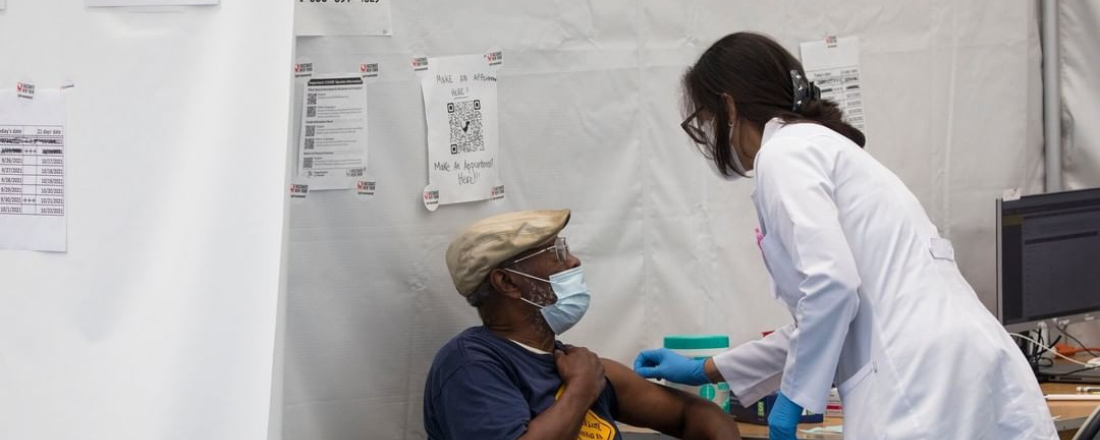
In the News
PHI’s Susan Watson Speaks on COVID-19 Vaccine Uptake in Black Communities
- Drug Topics
-
Focus Areas
Communicable Disease Prevention, Healthy Communities -
Expertise
Coalition & Network Building, Outreach & Dissemination -
Programs
Together Toward Health -
Strategic Initiatives
COVID-19, Vaccine Access & Equity

“Addressing hesitancy is more than just offering pertinent information.
Although vaccine hesitancy or refusal has been on the rise for years, the COVID-19 vaccine and its uptake highlighted potential areas to be improved. During a session at the American Public Health Association’s 2022 Annual Meeting & Expo, held November 6 to 9, 2022, in Boston, Massachusetts, researchers discussed outreach for the Latinx community, ensuring an equitable response in an area where the pandemic had exacerbated inequities, and addressing historical barriers in the Black community.
The County of San Luis Obispo Health Agency was faced with numerous hurdles to improve vaccine uptake, according to Sophie Glazebrook, BS, CHES, Health Education Specialist, County of San Luis Obispo Health Agency in California. The county is not close to large cities like San Francisco or Los Angeles; much of the population is Latinx, had limited access to vaccine distribution centers due to both to time and transportation needs, and many Latinx people in the community speak Mixteco, the language of the Mixtec originating in the Puebla and Oaxaca states in Mexico. Mixteco has no written form, meaning that instruction sheets or pamphlets were not available.
To address these issues, the health agency used a 2-pronged approach. They offered pop-up clinics (76 in total) in communities like Shandon, California, which have no pharmacies and lacked other brick-and-mortar facilities where vaccines would be provided. Additionally, there were canvassing teams that had at least one bilingual/multilingual promotor, who went on 75 canvassing trips. As a result of the efforts, the Latinx vaccination rate increased by 11.1%, in comparison to a 7.4% increase in the White community.
Many headlines during the pandemic underscored that Black communities were disproportionately impacted by the disease. When the vaccine became available, uptake rates were low in these communities, often assumed due to vaccine hesitancy. Using this term neglects the systemic barriers the community faces as well as the well-earned distrust of public institutions, according to Susan Watson, MPH, of the Public Health Institute. The Institute’s Initiative Together Toward Health funded community-based organizations to help address concerns.
The program was led by 3 guiding principles: listen and acknowledge, which addressed people who want to come in with pre-packaged solutions; represent, which meant that community members were hearing public health messages from someone who looked like them and understood their challenges; and inform and share power, which meant community members were in control of their own medical care, but had the necessary information, offered without an agenda. Some of the approaches used by community programs included staffing clinics with Black health workers, developing materials with an appropriate cultural lens, and holding vaccination concerts with local hip hop artists.”

...The core of our approach is in the end: trust. Trusting communities to articulate their own needs, trusting community members to help drive and execute outreach efforts, and trusting people to make their own decisions once we've given them the information they need.Susan Watson, MPH
Program Director, Together Toward Health
Click on the link below to read the full article.
Originally published by Drug Topics
More Updates
Work With Us
You change the world. We do the rest. Explore fiscal sponsorship at PHI.
Support Us
Together, we can accelerate our response to public health’s most critical issues.
Find Employment
Begin your career at the Public Health Institute.



